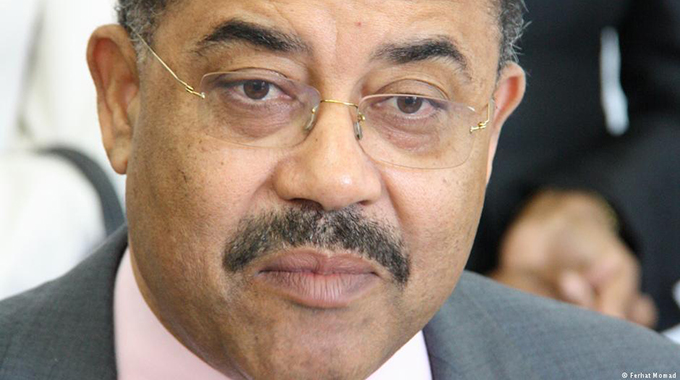Tendai Biti’s mischief exposed

The recent summoning of the Reserve Bank Governor, Dr John Mangudya, to appear before the Parliamentary Public Accounts Committee (PAC) has exposed Tendai Biti, the committee’s chairman, of using the hearing to play politics, unsettle financial markets and dissuade multilateral financial institutions from disbursing loans to the country.
The oversight role of Parliament with respect to transparency, accountability and good governance by the Reserve Bank of Zimbabwe in borrowing through the issuance of Treasury Bills (TBs) is never in doubt. During the interview, Biti sought to gain personal political capital by misrepresenting facts. Firstly, Biti accused Dr Mangudya and the RBZ of failing to seek parliamentary approval in respect of the US$1,3 billion worth of TBs that Treasury issued to take over non-performing loans (NPLs) from financial institutions. In 2015, Government created the Zimbabwe Asset Management Company (ZAMCO) as a special purpose vehicle (SPV) for the takeover of NPLs, which were threatening the collapse of the banks and industry.
The company has a sunset period of 10 years, up to 2025. ZAMCO gave industry reconstruction reprieve through extended loan tenors. As a result, some major companies such as Rio Tinto, starafrica, Ariston Holdings and Lobels were saved from collapse, thus preserving jobs. Additionally, industry capacity utilisation increased from around 10 percent in 2009 to current levels above 50 percent. In the 2019 and previous National Budget Statements presentations to Parliament, the Ministry of Finance and Economic Development reiterated that the issuance of TBs for the assumption of NPLs would be capped at US$1,3 billion. Surprisingly, Biti – who attends Parliament – professed ignorance or suddenly developed amnesia on the Budget presentations on same.
Biti is also trying to misinform the public that there is corruption in that companies that got relief through ZAMCO are those linked to senior Government officials. However, the NPLs are sold to ZAMCO by each individual bank on a willing seller, willing buyer basis. It is the financial institution which selects the NPL that would be sold, while ZAMCO would consider loan recoverability as well as the ceding of a title or security over the loan. As previously alluded to, some of the beneficiaries are just private companies with no direct links to Government or senior officials.
The RBZ should be applauded, judging by the good performance of ZAMCO to date. Out of the NPL loan book of US$1,3 billion, ZAMCO has made recoveries worth approximately US$260 million. Additionally, the proportion of NPLs to total loans significantly dropped from around 23 percent in 2015 to 8 percent by December 2018, which is marginally above the best international practice average of 5 percent.
The second narrative that Biti is trying to peddle is that the RBZ is raiding depositors’ funds to extend loans to Government. The fact of the matter is that the RBZ mobilises resources through various investment instruments including savings bonds. Investors with excess funds subscribe to the bonds attracted by the higher return payable on maturity. It is these funds from investment instruments, and not deposits, that the RBZ then on-lends to Government.
In the 2019 National Budget, the Minister of Finance and Economic Development, Professor Mthuli Ncube, caped the lending limit at 20 percent of Government revenue realised in the previous year. Biti’s mischief is mainly to cause panic in the financial markets through a run on deposits, where account holders would stampede to withdraw their funds, thus causing systemic bank failures. In 2018, the RBZ raised US$,5 billion from the issuance of savings bonds, of which it availed only US$2,99 billion as loans to Government.
Thirdly, Biti’s misinformation is a calculated manoeuvre to damage relations between Zimbabwe and multilateral financial institutions and in the process perpetuate his calls for financial sanctions on the country. Biti is pushing the agenda that the lines of credit worth approximately US$986 million that the RBZ recently negotiated with external lenders are null and void.
Biti is trying to cause disquiet by the lenders who include Afreximbank, which extended US$641 million, PTA Bank (US$152 million), the Central Bank of Mozambique (US$25 million), AfDB (US$15 million), PTA Re-insurance (US$9 million) and the South African Minting Company (US$1,9 million). All the loans were contracted procedurally and with ministerial consent as well as being presented to Parliament for ratification.
It is in the public domain that Biti, in cahoots with a United States Senator, John Flake, perennially lobby for the renewal of US sanctions on Zimbabwe through ZDERA. In that regard, Biti is agonising over the counter-balancing effect of the assistance Zimbabwe is getting from the cited lenders.
The die is cast, and it’s out for all and sundry to see that Biti is the architect of some of the financial constraints, particularly sanctions, that the country is facing. People in his Harare East constituency, business, labour, the civic society and the general public should hold him accountable. – Correspondent.










Comments